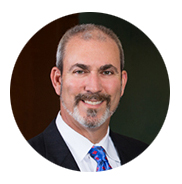Written by guest blogger and NVFS Board Member Wayne M. Zell, Esq., CPA
On Dec. 22, 2017, President Trump signed into law one of the most sweeping tax reform packages in decades. Formerly known as the “Tax Cut and Jobs Act of 2017,” the Tax Act makes several significant changes to the tax landscape for individuals that undoubtedly will impact charitable giving. This blog summarizes the most relevant changes and highlights how our donors, now more than ever, can use the savings provided under the Tax Act to enhance support for Northern Virginia Family Service (NVFS) programs.
Individual Changes
Most of the changes affecting individuals expire by the end of 2025. These changes include a decrease in the top tax rate from 39.6 percent to 37 percent and indexing of the new tax brackets by a more conservative “chained” Consumer Price Index (CPI) inflator. The Tax Act also nearly doubles the standard deduction to $24,000 for married filing jointly and $12,000 for single and other taxpayers. In addition, the Tax Act severely limits the ability of taxpayers to claim itemized deductions for state and local taxes, limiting the total that can be claimed to $10,000 (including income tax, property tax and sales tax).
The increased standard deduction and the curtailment/elimination of many itemized deductions likely will cause the population of “itemizers” to drop radically from about 30 percent to 6 percent of all individual tax filers. The Tax Act increased the limit on cash charitable contributions from 50 percent of adjusted gross income to 60 percent, making large cash donations more feasible to certain donors. As before, any excess, unused charitable donations can be carried forward for up to five years after the gift is made. Finally, the so-called “Pease” limitation (which reduced itemized deductions for higher-income taxpayers by 3 percent of the deductions in excess of specified floors) is suspended until Jan. 1, 2026, when it and all of the other individual changes referenced above revert to the “old” law.
A lower tax rate and fewer itemizers mean a lower or no tax benefit to individuals who make charitable contributions, while those who still itemize will benefit from the repeal of the Pease limitation and the increased charitable deduction limitation. Overall, these changes may translate into more dollars in taxpayers’ pockets.
In addition, certified public accountants (CPAs) and tax advisors are developing strategies to maximize the tax benefits of charitable donations, such as “bunching” charitable donations (and other itemized deductions) in one calendar year when itemized deductions can be claimed in excess of the standard deduction. Charities such as NVFS would prefer that donations not be delayed to ensure that critical program services can continue to be provided to clients.
Estate and Gift Tax Changes
The applicable exclusion amount (i.e., exemption) used in determining whether individuals are subject to estate, gift or generation skipping transfer tax on lifetime and death transfers doubled to nearly $11.2 million per person under the Tax Act. As a result, more than 99 percent of all U.S. taxpayers will escape these taxes on transfers made from 2018 until Dec. 31, 2025. After that date, the exemptions will drop back down to $5 million per person indexed for inflation (approximately $5.6 million in 2018, if the Tax Act had not been passed).
Any donations to charity are deductible for estate, gift and goods and services tax (GST) tax purposes. The increased exemptions may adversely affect charitable giving, because most taxpayers no longer will need the ability to reduce their transfer tax liabilities by charitable donations. NVFS looks at this change differently; increased exemptions mean more dollars available for you to pursue charitable goals of supporting critical NVFS programs such as Healthy Families, the SERVE Campus and Training Futures. Let “trickle down” philanthropy be your mantra for 2018!
 |
Wayne M. Zell is a tax attorney and shareholder at Odin, Feldman & Pittleman, P.C. |
You may also like:
Training Futures Trainees Hone Skills with Corporate Internships
Becoming Better Employers Through Corporate Social Responsibility


